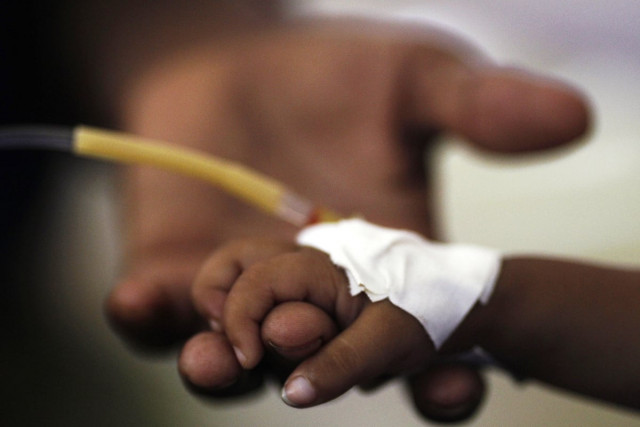‘Next six months critical’
Ministry of Health warns next six months would be critical for the survival of flood victims.

“As water moves away, health challenges will emerge. In days to come, we will need to have a coordinated response,” said Federal Secretary of Health Khushnood Akhtar Lashari, during a joint press conference with World Health Organization (WHO) at Pakistan Institute of Medical Sciences (Pims).
He said malaria, diarrhoea and skin diseases are the major causes of concern in the affected areas. So far there have been around 610,000 cases of diarrhoea, 671,000 cases of respiratory infection and 861,000 cases of skin diseases.
There were 1,600 reported deaths initially, whereas around 400 have died in the aftermath of the floods, he added. Disease Early Warning System (DEWN) has been activated to report any semblance of an epidemic from any of the affected areas. “Luckily there have been no epidemics but we are being vigilant,” Lashari said.
The secretary said in the aftermath of devastating floods across the country, the number of affected has swollen to a staggering 4,572,000, which includes 500,000 expecting mothers. He said that over 184 static and mobile teams are available to ensure safe deliveries of these women, while more ambulances have been requested from international donors. He assured that the Ministry of Health will ensure availability of medicines in all the relief camps around the clock.
Speaking on the occasion, representative of WHO Guido Sabatinelli said that a total of 562 health facilities have been compromised in the floods, out of which 452 have been destroyed and 110 have been damaged. He said all these health facilities will have to be restored in the rehabilitation phase.
“We have to promote the return of Internally Displaced Persons (IDPs) as soon as possible, as their concentration in a small area constitutes risk of epidemics,” he said. With the support of WHO, he said, medicines for 2 million people have been provided, whereas further medicines for 4 million people will be provided in the next 3 months.
Special Secretary Health Punjab Abdullah Sumbal informed that 68 teams, comprising four to eight members, have been organised from the medical colleges of Punjab to work in the flood affected areas. Post graduate students and specialists from the medical colleges are also busy providing medical care to the flood victims, he said.
Director General Health Sindh informed that 950,000 patients have so far been attended in health facilities set up in the affected areas of the province. He said there have been 37 snake bite cases with one death in the affected areas. So far 340 safe deliveries have been carried out in the affected areas of Sindh province, he added.
The press conference was held after the conclusion of a meeting of the National Steering Committee on Health Emergency, constituted by the prime minister, government secretaries and deputy general health of all provinces and representatives of international partner agencies. Executive Director Pims Mehmood Jamal, provincial health secretaries and senior health officials were also present on the occasion.
Published in The Express Tribune, September 5th, 2010.



















COMMENTS
Comments are moderated and generally will be posted if they are on-topic and not abusive.
For more information, please see our Comments FAQ